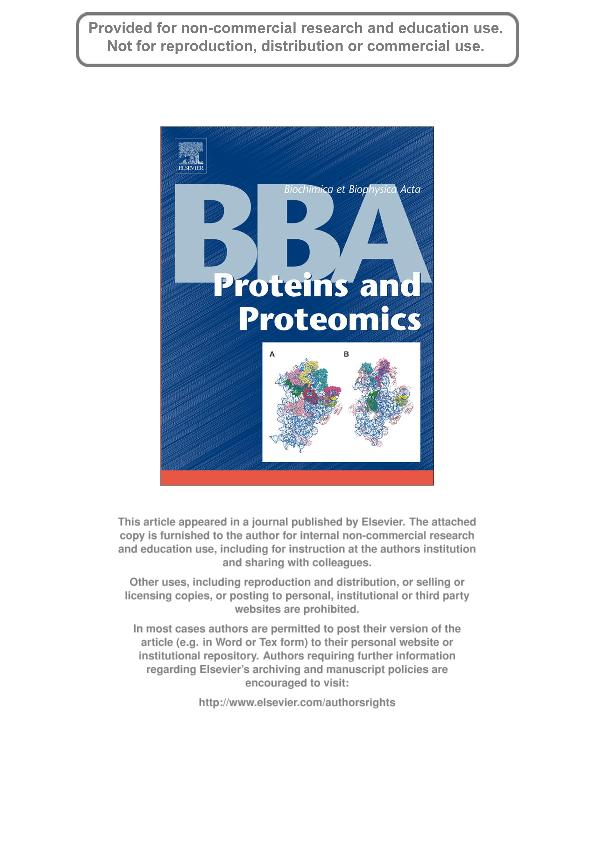Artículo
Frataxin from Psychromonas ingrahamii as a model to study stability modulation within the CyaY protein family
Roman, Ernesto Andres ; Faraj, Santiago Enrique
; Faraj, Santiago Enrique ; Cousido Siah, Alexandra; Mitschler, André; Podjarny, Alberto Daniel; Santos, Javier
; Cousido Siah, Alexandra; Mitschler, André; Podjarny, Alberto Daniel; Santos, Javier
 ; Faraj, Santiago Enrique
; Faraj, Santiago Enrique ; Cousido Siah, Alexandra; Mitschler, André; Podjarny, Alberto Daniel; Santos, Javier
; Cousido Siah, Alexandra; Mitschler, André; Podjarny, Alberto Daniel; Santos, Javier
Fecha de publicación:
06/2013
Editorial:
Elsevier Science
Revista:
Biochimica Et Biophysica Acta-proteins And Proteomics
ISSN:
1570-9639
Idioma:
Inglés
Tipo de recurso:
Artículo publicado
Clasificación temática:
Resumen
Adaptation of life to low temperatures influences both protein stability and flexibility. Thus, proteins from psychrophilic organisms are excellent models to study relations between these properties. Here we focused on frataxin from Psychromonas ingrahamii (pFXN), an extreme psychrophilic sea ice bacterium that can grow at temperatures as low as - 12 C. This α/β protein is highly conserved and plays a key role in iron homeostasis as an iron chaperone. In contrast to other frataxin homologs, chemical and temperature unfolding experiments showed that the thermodynamic stability of pFXN is strongly modulated by pHs: Ranging from 5.5 ± 0.9 (pH 6.0) to 0.9 ± 0.3 kcal mol- 1 (pH 8.0). This protein was crystallized and its X-ray structure solved at 1.45 Å. Comparison of B-factor profiles between Escherichia coli and P. ingrahamii frataxin variants (51% of identity) suggests that, although both proteins share the same structural features, their flexibility distribution is different. Molecular dynamics simulations showed that protonation of His44 or His67 in pFXN lowers the mobility of regions encompassing residues 20-30 and the C-terminal end, probably through favorable electrostatic interactions with residues Asp27, Glu42 and Glu99. Since the C-terminal end of the protein is critical for the stabilization of the frataxin fold, the predictions presented may be reporting on the microscopic origin of the decrease in global stability produced near neutral pH in the psychrophilic variant. We propose that suboptimal electrostatic interactions may have been an evolutionary strategy for the adaptation of frataxin flexibility and function to cold environments.
Archivos asociados
Licencia
Identificadores
Colecciones
Articulos(IQUIFIB)
Articulos de INST.DE QUIMICA Y FISICO-QUIMICA BIOLOGICAS "PROF. ALEJANDRO C. PALADINI"
Articulos de INST.DE QUIMICA Y FISICO-QUIMICA BIOLOGICAS "PROF. ALEJANDRO C. PALADINI"
Citación
Roman, Ernesto Andres; Faraj, Santiago Enrique; Cousido Siah, Alexandra; Mitschler, André; Podjarny, Alberto Daniel; et al.; Frataxin from Psychromonas ingrahamii as a model to study stability modulation within the CyaY protein family; Elsevier Science; Biochimica Et Biophysica Acta-proteins And Proteomics; 1834; 6; 6-2013; 1168-1180
Compartir
Altmétricas



